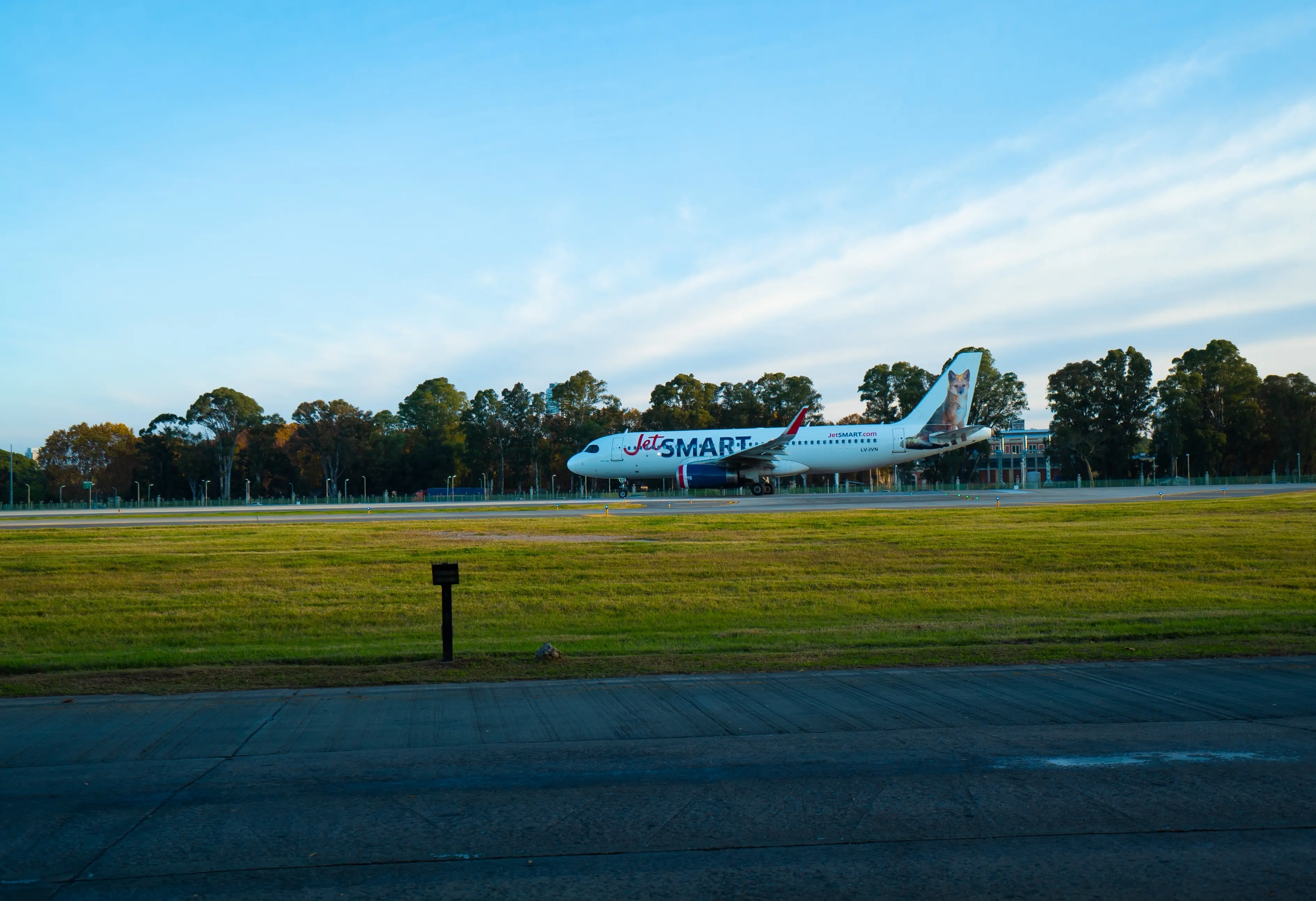
Save Money on Flights with Comparison Websites
Updated August 2, 2023Comparison Websites
Comparison websites have revolutionized the way we search for and book flights. These platforms compile and display prices from various airlines and online travel agencies, allowing travelers to make informed decisions and find the best deals available.
The Use and Importance of Flight Comparison Websites
Flight comparison websites are valuable tools for travelers looking to save money on flights. These platforms aggregate flight options from multiple sources, providing a comprehensive overview of available fares, routes, and airlines. They save time and effort by presenting all the options in one place, allowing users to easily compare prices, flight durations, and other important details.
Examples of Reliable Comparison Websites
There are several reliable flight comparison websites that have earned a reputation for providing accurate and up-to-date information. Here are a few examples:
Skyscanner - Skyscanner is a popular flight search engine that aggregates flight options from airlines, online travel agencies, and other sources. It offers an intuitive interface, flexible search options, and features like price alerts and a "best time to book" tool.
Kayak - Kayak is another well-known travel search engine that covers flights, hotels, and car rentals. It provides comprehensive search results, including options from major airlines and online travel agencies, alongside user-friendly filters and price alerts.
Google Flights - Google Flights is a powerful flight search tool that allows users to explore flights from multiple airlines and online travel agencies. It offers advanced filtering options, interactive maps, and features like price insights to help travelers make informed decisions.
These examples represent a fraction of the numerous flight comparison websites available. It's worth exploring different platforms to find one that best suits your needs and preferences.
Off-Peak Travel
Understanding off-peak and shoulder seasons can be a game-changer for finding cheap flights. Off-peak travel refers to periods when there is lower demand for flights, typically outside of major holidays and peak vacation seasons.
Understanding Off-Peak and Shoulder Seasons
Off-peak seasons are periods when destinations experience fewer tourists, resulting in reduced flight prices. These seasons often coincide with times when schools are in session or when the weather is less favorable in certain destinations. Shoulder seasons, on the other hand, are transitional periods between peak and off-peak times.
How to Leverage Off-Peak Periods for Cheap Flights
To take advantage of off-peak travel and secure cheaper flights, consider the following strategies:
Flexibility: Be open to adjusting your travel dates to align with off-peak seasons. This may mean traveling during weekdays or choosing less popular months for your destination.
Destination Selection: Research destinations that offer attractive off-peak experiences. For example, some beach destinations have milder weather during off-peak seasons but still offer enjoyable experiences.
Airline Deals: Keep an eye out for airline promotions and special deals that are often offered during off-peak periods. Airlines may offer discounted fares to stimulate demand during slower travel seasons.
By planning your trips during off-peak periods, you not only benefit from cheaper flights but also enjoy destinations with fewer crowds, better availability of accommodations, and a more authentic local experience.
Booking in Advance
Knowing when to book your flights can significantly impact the price you pay. Booking in advance offers both rewards and risks that travelers should consider before making their reservations.
The Right Time to Book Flights
The ideal time to book flights varies depending on several factors, including the destination, the time of year, and the type of trip. However, various studies and experts suggest that booking flights around 6-12 weeks in advance can yield the best prices.
The Risks and Rewards of Advance Booking
Booking flights well in advance offers several advantages. Firstly, it allows you to secure flights for popular destinations and peak travel periods where availability may be limited. Additionally, booking early can provide peace of mind, especially for those who prefer to plan their trips well in advance.
However, there are risks associated with booking too far ahead. Prices may drop closer to the departure date if airlines introduce sales or fare reductions. There is also a possibility that changes in personal circumstances or travel plans may require adjustments or cancellations, potentially incurring extra fees.
Finding the right balance between booking in advance and waiting for potential last-minute deals depends on personal preferences, the destination, and the desired level of flexibility.
Consider Alternative Airports
When planning a trip, considering alternative airports can lead to significant cost savings. Many cities have multiple airports within reasonable proximity, and flying in or out of these alternative airports can sometimes result in cheaper fares.
The Cost Benefits of Flying in/out of Alternative Airports
Flying in or out of alternative airports can offer several cost benefits. These airports may have lower landing fees and operating costs, which can translate into lower airline ticket prices for travelers. Additionally, competition among airlines at alternative airports can lead to more competitive fares compared to larger, more congested airports.
Practical Examples of Significant Savings from Alternative Airports
Here are a few practical examples that highlight the potential savings from flying in or out of alternative airports:
New York City: Instead of flying into John F. Kennedy International Airport (JFK), flying into Newark Liberty International Airport (EWR) or LaGuardia Airport (LGA) can sometimes result in cheaper fares, especially for domestic flights.
Chicago: Instead of flying into O'Hare International Airport (ORD), flying into Chicago Midway International Airport (MDW) can provide cost savings, as it is a hub for low-cost carriers.
London: Instead of flying into Heathrow Airport (LHR), flying into London Gatwick Airport (LGW) or London Stansted Airport (STN) can often result in lower fares, particularly for budget airlines.
By considering alternative airports and comparing fares, travelers have the opportunity to save significantly on their flight expenses.
Sign up for Fare Alerts
Fare alerts are a valuable tool for travelers who are looking to score the best flight deals. These alerts notify users when there are significant price drops, sales, or promotions for specific flights or routes.
Understanding Fare Alerts and Their Benefits
Fare alerts enable travelers to stay updated on fluctuating fares and take advantage of discounted prices. They help users monitor prices for specific flights or destinations, providing timely notifications when there is a price reduction or when fares reach the desired target.
By signing up for fare alerts, travelers can save time and effort by staying informed about the best flight deals without having to constantly search for flights themselves. Fare alerts are particularly useful when planning a trip in advance or when flexibility allows for adjusting travel dates to secure the best prices.
How to Set Up and Use Fare Alerts
Setting up fare alerts is typically straightforward and can be done through various flight comparison websites or airline-specific apps. Here is a general guide on how to set up and use fare alerts:
Choose a platform: Select a flight comparison website or airline app that offers fare alerts. Examples include Skyscanner, Kayak, Google Flights, or specific airline apps like United Airlines or Delta Air Lines.
Search for a flight: Enter your desired travel dates, destinations, and other preferences to search for available flights.
Enable fare alerts: Look for an option to enable fare alerts. This is usually displayed alongside the flight search results or in the settings/preferences section of the platform or app.
Set your preferences: Specify your desired price range or any other criteria for the fare alerts, if applicable.
Receive notifications: Once your fare alerts are set up, you will receive notifications via email or app notifications when prices drop or meet your specified criteria.
By setting up fare alerts and keeping an eye out for notifications, travelers can seize the opportunity to book flights at discounted prices.
Utilize Frequent Flyer Programs
Frequent flyer programs are loyalty programs offered by airlines to reward regular customers with a range of benefits and perks. These programs aim to cultivate customer loyalty by providing incentives for travelers to choose a specific airline.
An Overview of Frequent Flyer Programs
Frequent flyer programs typically offer benefits such as priority boarding, access to airport lounges, extra baggage allowance, and the ability to earn and redeem miles or points for flights, upgrades, or other rewards. Members of these programs accumulate points or miles based on their travel activity, including the distance flown and the fare class booked.
Travelers can join frequent flyer programs free of charge, and membership often begins with a basic tier that provides certain benefits. As travelers accumulate more points or miles, they can move up to higher tiers with enhanced privileges.
How to Maximize the Benefits of These Programs
To maximize the benefits of frequent flyer programs, consider the following strategies:
Choose an airline alliance: Airlines often belong to alliances, such as Star Alliance, SkyTeam, or Oneworld. By choosing an airline within the same alliance for most of your flights, you can earn and redeem miles across multiple partner airlines, expanding your earning and redemption opportunities.
Focus on a few programs: Instead of joining multiple frequent flyer programs, it can be more advantageous to concentrate on a few programs that align with your travel patterns and offer the best benefits. This allows you to accumulate points or miles more quickly and reach elite status, unlocking additional perks.
Take advantage of promotions: Keep an eye out for promotions, bonus offers, or special deals from frequent flyer programs. This includes opportunities to earn extra miles through partners, credit card spending, or targeted promotions.
Redeem wisely: When redeeming miles or points, prioritize high-value redemptions such as business class or first-class flights or upgrades. Research the redemption options and value proposition of each program to make the most of your earned rewards.
By utilizing frequent flyer programs strategically, travelers can enjoy enhanced travel experiences, earn perks, and potentially reduce their out-of-pocket expenses on future flights.
Identifying Unnecessary Airline Extras
One way to save money on flights is by identifying and avoiding unnecessary airline extras. These extras, such as seat selection, priority boarding, and in-flight meals, can significantly increase the cost of your ticket.
Strategies to Avoid or Minimize Extra Costs
To avoid or minimize unnecessary costs, it is essential to have a clear understanding of what is included in the base fare and what extras are being offered.
Being aware of the airline's baggage policies is also crucial. By packing light and adhering to carry-on limits, you can avoid additional luggage fees. Furthermore, being flexible with your travel dates and destinations can give you more options when it comes to finding affordable flights.
Be Flexible with Connections
Considering longer or additional connections can be a cost-saving strategy. The New York Times suggests that booking flights with longer layovers or connecting flights can often result in lower fares. Airlines may offer discounted rates for flights with more extended layovers, making it an opportunity to explore the connecting city or simply relax at the airport.
Before booking flights with longer connections, it is important to assess and manage the risks. Delays and missed connections can occur, so it is advisable to leave ample time between flights and check the airline's policies on missed connections.
Pack Light to Avoid Extra Fees
When it comes to saving money on flights, it's essential to pack efficiently and avoid extra luggage fees. Airlines often charge significant fees for checked baggage, especially for overweight or oversized items. By packing light and only bringing the essentials, you can save on these additional costs. Travel + Leisure suggests using packing cubes and rolling clothes to maximize space and minimize the need for extra luggage.
Conclusion
To recap, there are several strategies to save money on flights:
- Identify and avoid unnecessary airline extras
- Book directly with the airline and only choose essential services
- Be flexible with connections to potentially find lower fares
- Assess and manage the risks of longer or additional connections
- Pack light and efficiently to avoid extra luggage fees
By implementing these tips and recommendations, travelers can significantly reduce their expenses and make their air travel more budget-friendly.

How to save
Cheap Hotels in Ocean City, Maryland
June 12, 2023

How to save
Cheap Hotels in Downtown Chicago
June 12, 2023

How to save
Cheap Hotels In Destin, Florida
June 12, 2023

How to save
Cheap Eats in San Francisco
June 12, 2023

How to save
Cheap and Tasty Eats in Boston
June 12, 2023

How to save
Eating Cheap in Paris
June 12, 2023

How to save
Camping World Coupon Codes and Deals
June 12, 2023

How to save
Getting Around Milan on a Budget
June 12, 2023

How to save
Hong Kong on the Cheap
June 12, 2023

How to save
Hotels.com Coupon Codes and Deals
June 12, 2023

